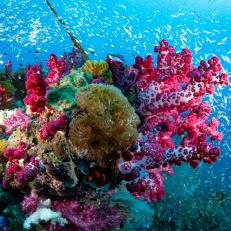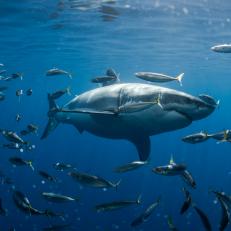The Dangers of Ocean Acidification
Since 1970, NRDC has worked to ensure the rights of all people to clean air, clean water, and healthy communities. Today, NRDC is leading the fight to save our climate so that future generations can thrive. Be a force for the future - Join us.
Carbon dioxide pollution is the primary cause of global warming, but it also is making ocean water more acidic. This phenomenon, known as ocean acidification, may soon challenge the survival of thousands of marine species. The NRDC explores the global threat of ocean acidification in ACID TEST.
You can stream ACID TEST on discovery+.
Shop This Look
Ocean acidification (OA) is the quiet tsunami of environmental degradation. Within a few decades, OA may devastate some marine ecosystems and threaten the productivity of our fisheries. When we burn oil, coal, or gas, scientists have recently shown, we are transforming the fundamental chemistry of the oceans, rapidly making the water more acidic.













.jpg.rend.hgtvcom.231.231.suffix/1591739188387.jpeg)




.jpg.rend.hgtvcom.231.231.suffix/1632421591119.jpeg)




.jpg.rend.hgtvcom.231.231.suffix/1629480570425.jpeg)


